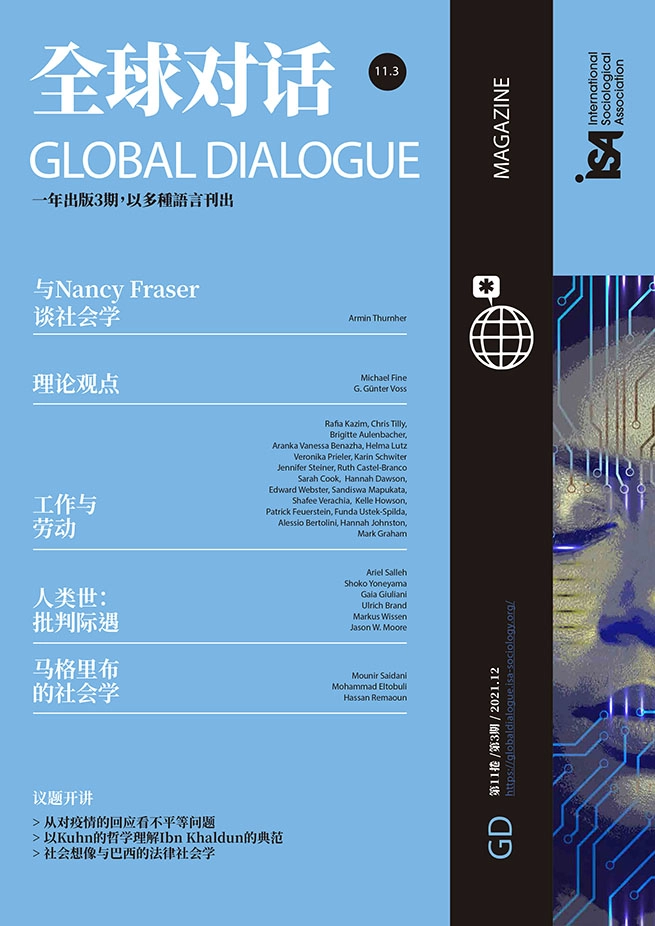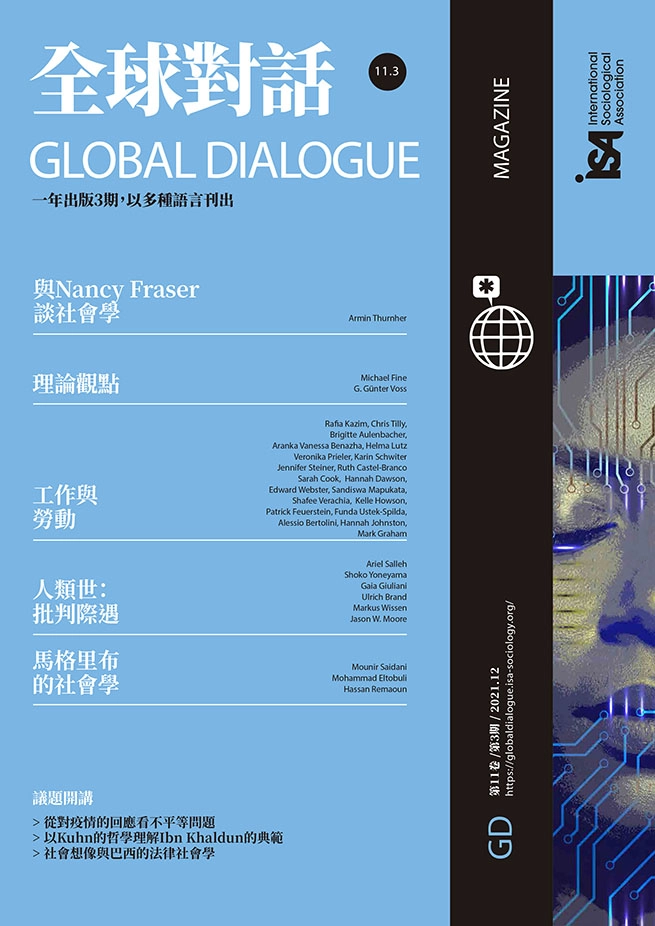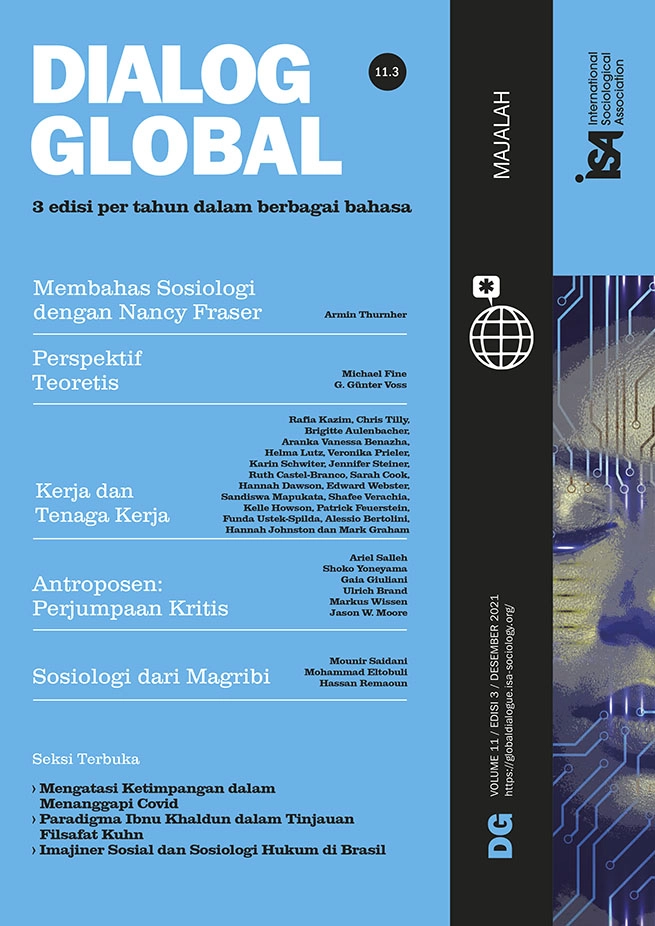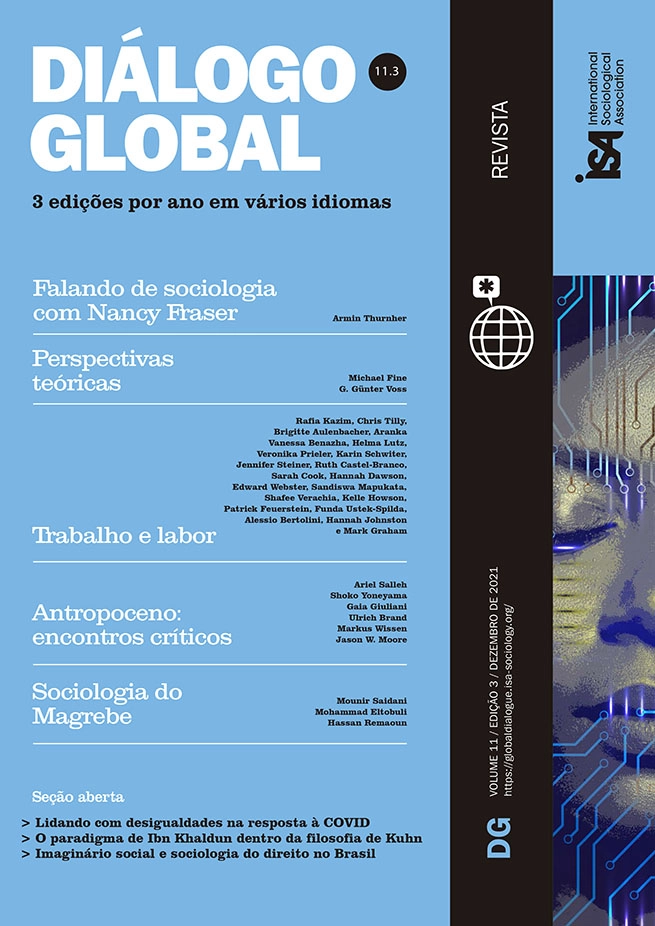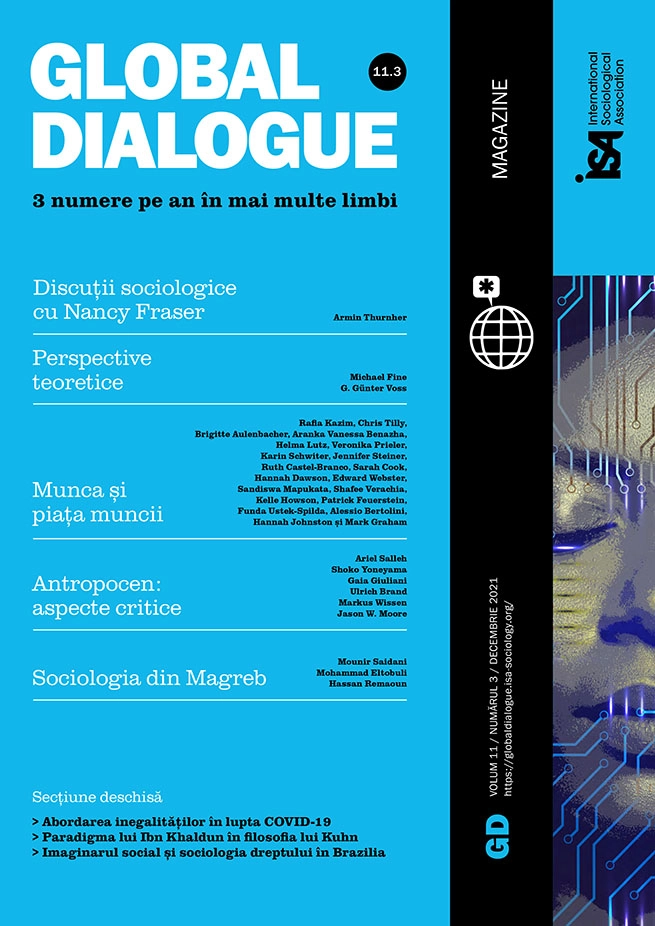Read more about Theoretical Perspectives
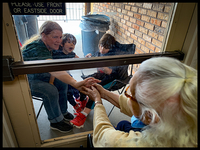
Care Home Deaths amidst the Pandemic
by Michael Fine
November 05, 2021
In sociological terms, work may be understood as a purposeful human activity using physical strength and psycho-physical skills. The fact that other criteria (effort, utility, tools, wages, etc.) are often additionally invoked as primary aspects indicates that the category as such is far from unequivocally defined. Even though work is performed by individuals, it is at least indirectly always integrated into and shaped by constantly changing social contexts that are based on a division of labor (cooperation, organizations, etc.).
What is work?
Like almost no other concept, the notion of work has been subject to historical change both scientifically and particularly regarding social practice. More recently, there have been fierce controversies over the question of what work actually is or is supposed to be. What follows are a few reflections on how to define work more clearly.
One long-standing question is whether work is above all a “burden,” or whether it can also provide “pleasure” - as a result of the sense of achievement it gives people - and offer important opportunities for positive self-development. There are two distinct perspectives hidden in this differentiation. One sees work as the basis of human existence constituting an indispensable opportunity for experience, the absence of which implies a veritable denial of essential human needs or even human dignity. Concrete historical manifestations of work, however, have been (and continue to be) associated with burdens and hazards for many groups in society, leading to ever new forms of the disutility of effort. This is expressed, for example, in the difference between the Latin words “labor” (travail, or hardship) and “opus” (creation; what has been created), which is also mirrored in the difference between the English words “labor” (including denoting the act of giving birth) and “work,” and which is furthermore captured in the German difference between “Arbeit” and the less frequently used German word “Werk.”
Fairly widely known, of course, is the distinction made by Karl Marx (but also by Adam Smith, and even by Aristotle, the latter of whom used the terms oikonomia and chrematistics) between two aspects (“the double character of work/labor”): the creation of practical “use values” through “concrete” productive labor, on the one hand, and the generation of economic “exchange values” through “abstract” labor on the other. The development of this contrast, the argument runs, is systematically facilitated under capitalism, thus leading to an increasingly significant social contradiction.
Although the assumption that the activity of working people in advanced societies is predominantly geared towards earning money (“gainful work”) went unquestioned for a long time, today, a more broadly conceived concept of work reflects the increasing recognition that work has assumed a great diversity of forms historically, differing not only with regard to its substance, but also its social perception. This also suggests that the specific form work takes has always been and still is subject to constant change. Alongside the income-oriented forms (for the majority varying types of dependent wage labor, and for a small number of people, a substantial number of forms of self-employment), there is a remarkable diversity of other manifestations of work: “volunteer work” or “civic engagement” (usually without the aim of earning money); “mandate-based” or “political work”; “domestic work” (shopping, cooking, cleaning etc.); “family-related and care work” (child-rearing, nursing, care of old persons etc.); “self-sustaining work” and “subsistence work” (the direct production of goods, including for self-sufficiency); “forced labor” (performed by convicts, conscripts, slaves etc.).
Similarly, for a long time, work was regarded quite straightforwardly as a primarily material “productive” activity, which turned out to be a rather inaccurate description of reality in many ways, however. It was gradually conceded that even “unproductive” work is very important (e.g., administrative work, knowledge-based work) and that “services,” which were poorly understood for a long time, are increasingly gaining in importance (e.g., directly/indirectly personal, informational, financial, and technical services).
And, equally significantly, it was reluctantly acknowledged that there are more than just a few variants of work that are explicitly “destructive” (war-related work, violent criminal activity, damaging modification and/or the outright destruction of the natural world). The latter illustrates that work always denotes a constant modification of forms, creating a new form (e.g., a chair) while destroying an existing form (e.g., a tree).
Furthermore, the assessment of the much-invoked “utility” of work can differ quite strongly, depending on the respective vantage point: what may appear advantageous in some contexts can turn into substantial disadvantage in others; what may be useful in the short term can cause large-scale damage in the long term.
What is also being raised in a new form today is the question of whether work is an inherently human feature and thus an evolutionarily exclusive core characteristic of humans as “species-beings” or Gattungswesen (Marx), or whether other living creatures perform work as well. More recent ethnological findings show that work-like activities, the random isolated use of rudimentary tools, and even certain forms of production are not exclusive to placentals, leave alone to humans. Marx in fact already conceded that animals perform work and even use tools. He asserted that human labor, then, is characterized by the production of tools, but, above all, by a controlling consciousness, which is what distinguishes even the “worst architect” from the “best bee,” to reference an image Marx uses. Today, we would have to add the (sometimes rather unsettling) question: To what extent might complex machines and processes actually perform work as well (e.g., flexible automation, robots, artificial intelligence)?
Historically changing conceptions of work
Such conceptual tensions show that the highly diverging notions of work throughout its historical process of change represent an inherently sociological concern. To illustrate this, let us take a brief look back at history:
The actual history of work unfolds in parallel to the evolving social concept of work, but the two are not the same. The dominant viewpoint in each case always captures only a snapshot of the range of relevant work activities. Many socially important tasks, by contrast, are systematically ignored and thereby devalued. Added to this, the actual history of work is also always a history of “tools” and thus a history of the interaction of humans as “natural beings” with their natural living conditions and their “inner nature” (Marx). In this sense, the history of work is, on the one hand, a history of astonishing developments of human abilities and skills, technological possibilities, and the use of the potential of nature. At the same time, it is also a history of the destruction of natural and cultural values, the exploitation and alienation of humans, and ceaselessly recurring forms of the disutility of effort. This remains valid to this day, and increasingly so the greater the distance is from the centers of modern capitalism. And this includes not least the history of those people who are systematically excluded - both locally and on a global scale - from work and thus from employment opportunities that would allow them to sustain themselves. Since the novel kinds of mass immiseration that emerged during the early years of industrialization have been mitigated through the establishment of (limited) social security systems in some regions, the hazards associated with the deregulation of social security systems and employment relations are once again increasing everywhere. To the occasional surprise of many, there is frequent evidence of the fact that work-related illnesses manifest not only physically, but also as severe psychological conditions even in the welfare states of the Global North.
Sociological theorization of work
Sociology has dedicated itself to the subject of work time and again (albeit often only rather selectively). In the process, sociologists have drawn on concepts from different disciplines. But it was only after the turn of the twentieth century that sociological theory formation became more broad-based. The following examples illustrate this:
Even though “work” (in the broader sense) characterizes a substantial proportion of human activity, human existence cannot be reduced to it. Human beings are not (as some still seem to believe) predominantly acquisitive, work-obsessed creatures in a “work-centered society.” Such a view fails to capture the distinctiveness of many other important human activities. Categories such as “rest,” “recreation,” or “sports” all seek to incorporate this “other” - sometimes encountering the same difficulties when trying to formulate accurate definitions (such as regarding work aspects of sports and play). The task at hand with respect to the concept of work is overcoming a binary view based on a static truth claim. What would be far more relevant is a relational understanding based on flexible parameters in order to identify the particular ways in which “work” features in distinct activities. Only in that way can the above highlighted diversity of modern forms and notions of work be fully understood.
G. Günter Voss, Professor Emeritus, Chemnitz University of Technology, Germany <info@ggv-webinfo.de>
This issue is not available yet in this language.
Request to be notified when the issue is available in your language.
If you prefer, you can access previous issues available in your language:


